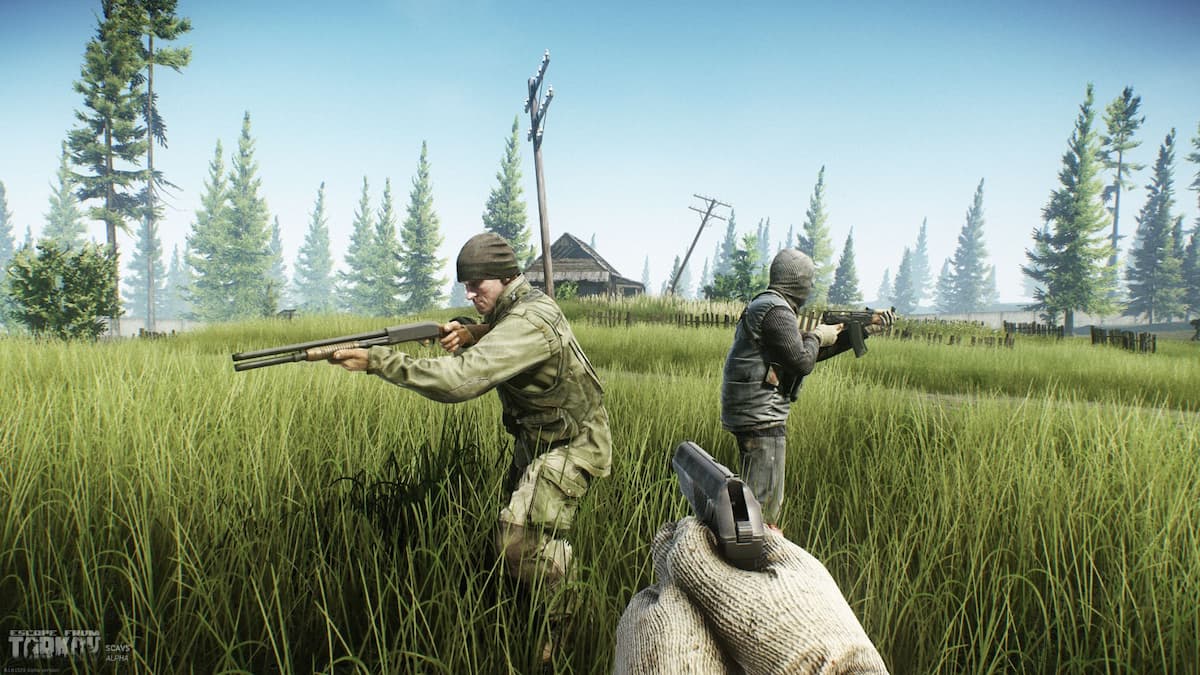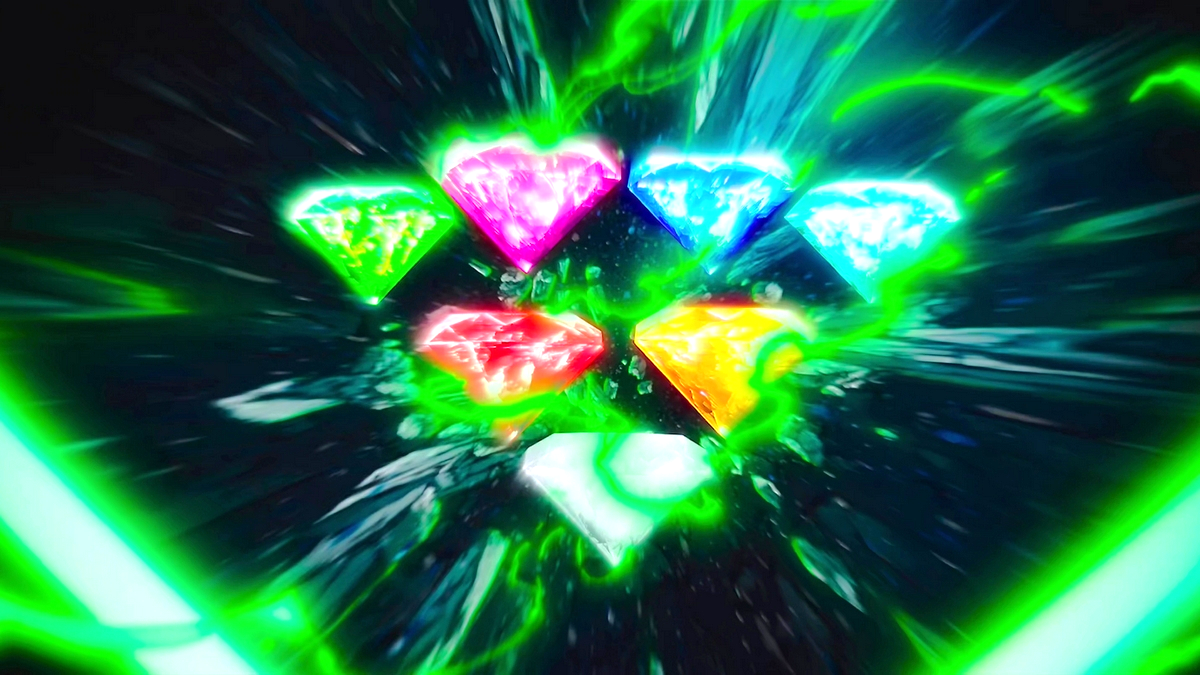
Development hell is a special sort of delay that manages to not only keep a much-desired product from reaching its fans but also keeps those fans on their toes for years. Some would argue it’s easier to know that a project has been canceled rather than spend years building up hype that can never be reached. The protagonist of The Magic Circle: Gold Edition refuses to see his world left to stagnate, though, and sets off on a quest to save his unfinished lands from their greatest enemies: the developers.
Languishing in development for 20 years, The Magic Circle is a game within the game that serves as a highly anticipated sequel to a classic text-based adventure involving an epic battle against the Starfather. The protagonist, just as unfinished as the world they inhabit, is granted the powers to finish putting the pieces together right under the developers’ noses, despite meddling on their part.
As an exploration of development hell from the view of the developers, real world creators Question certainly craft a fascinating look at the inner workings and turmoil a studio might face. The creator of the fictional series is your typical egomaniac (a la John Romero or Peter Molyneux) while the two women he works closest with are a cynical pro-gamer turned developer and a massive fan of the previous series entry, both of whom have their own goals for the finished project. Between them and their storm of ideas, nothing can be decided, leaving the protagonist with no weapon or powers, a colorless, unformed world to be explored and a previously canceled game that’s already worn on public goodwill.

The environment clearly illustrates a work in progress, with sketches and uncolored landscapes serving as placeholders rather than a finished product. Shimmering landmarks are scattered throughout that represent deleted sections of the game that can be brought back to life by the protagonist, introducing ideas that maybe weren’t bad enough to be completely erased by the fictional developers. There are also sections of the aforementioned PS1 era canceled game that can be explored throughout the world, although these sections tend to harshly yank you out of focus with their pixelated space stations. There’s also not much in the way of explanation as to how this world ended up inhabiting the same one as The Magic Circle, which is a disappointing oversight.
Although it’s hard to explain why audio files and transcripts of conversations between the three developers are found throughout the game, they do give a good idea of how frustrating it can be to have too many powerful minds working on a project that needs a singular vision. The level designers and art directors also get into it with each other, leaving evidence of spates about the game’s artistic value and whether it’s more important than the ability to easily traverse the world.
Smatterings of humanity can also be found throughout the world, with the creator in particular being given a bit more of a backstory regarding how his personal life interfered with his gaming legacy and vice versa. It’s not very easy to like many of the developers due to their petty quarreling, but Question does bring a level of empathy to their characters.
Just as the story focuses on what makes a studio tick, so does the gameplay, and this is where The Magic Circle both thrives and falters. The protagonist is gifted the powers of various development tools from a mysterious voice called the Old Pro who, aside from sounding like Beetlejuice, is there to help you finish creating the world by wresting control from the “Sky Bastards,” the affectionate nickname given to the developers in-game cameras.
With these tools at your disposal, you are able to trap the various creatures scattered throughout the land and edit them through a limited number of options, including changing their allegiances, special powers, movement abilities and whether they can be picked up or not.

Given these tools, it’s up to you to solve various puzzles however you see fit, which is where The Magic Circle excels. By giving you the ability to absorb all of the characteristics of any of your allies, you can assign any abilities to any creature, changing their usefulness greatly. Thanks to this unique power, there are tons of ways to solve the brain teasers that make up most of the 4-5 hours of playtime.
For example, if you’re trying to cross a river of lava that’s too wide to hop, you can make one of your larger allies fireproof and ride it across, or you could summon all of the rocks you’ve interacted with throughout your journey and create a path across. Of course, if you’re unimaginative like me, you could always toss one of your teleporters across the river and take the easy way out. Combat, though sparse, can also become quite entertaining, especially once you gain the ability to make all enemies of a certain type have the same powers, meaning you’ll have a legion of flying Howlers equipped with rail guns at your disposal.
While the multitude of options help to keep the game fresh and quick, as does a map that allows fast travel from the beginning, The Magic Circle gets bogged down in its execution of these ideas. The Gold Edition for the PS4 is basically a polished up port of the original PC title, and it’s easy to see as you navigate the menus for editing your creatures. Like other PC ports brought to consoles, this is a game that doesn’t try to hide the fact that it’s best played with a mouse and a keyboard.
There are also a few issues with the editing mechanic that make combat and puzzles a nuisance. There’s no way to edit all of one type of enemy, or the group as a whole for that matter, meaning you have to edit each ally one at a time to set who they’re attacking and who they’re defending, as well as how they’re going to do it. You’re allies also follow you to the ends of the Earth, and once you start to gain allies ranging in the 20s, you’ll have a mob crowding you at all times. A command to make them stay somewhere until summoned would have been nice, but as it stands your only option is to let them die and then run off before you accidentally heal them.
You have a few ways to bring allies to your side from anywhere on the map, but both are tedious as well. You can either pull up the map, pinpoint the creature on your map, and summon it alone, or you can hold the R2 and L2 buttons and summon every single creature who is set to be your ally. By default, I made every creature I trapped my ally before realizing that wasn’t necessary, which made it doubly annoying when I realized the creature I needed wasn’t set as my ally and therefore couldn’t be summoned.
The ideas are there for some genuinely interesting gameplay developments, but the implementation is clunky and oftentimes frustrating, although the lack of load times and inclusion of fast travel keep controllers from being thrown. Question has created a unique scenario that I can recommend to people on a rainy day, but the gameplay is only good enough to pull you through to the end. As much as I wanted to, I never found myself getting sucked into the world I was piecing back together, despite leaving my fingerprints all over the landscape in the warped creatures I created.
For fans of the Duke Nukem series or people who waited for Aliens: Colonial Marines with bated breath only to be sorely disappointed, The Magic Circle: Gold Edition offers a look at just a few of the issues those titles might have faced had they been produced by someone with a Molyneux level ego. It’s just a shame it’s not nearly as fun to play as it is to experience.
This review is based on a PlayStation 4 copy of the game, which was provided for us for review purposes.





